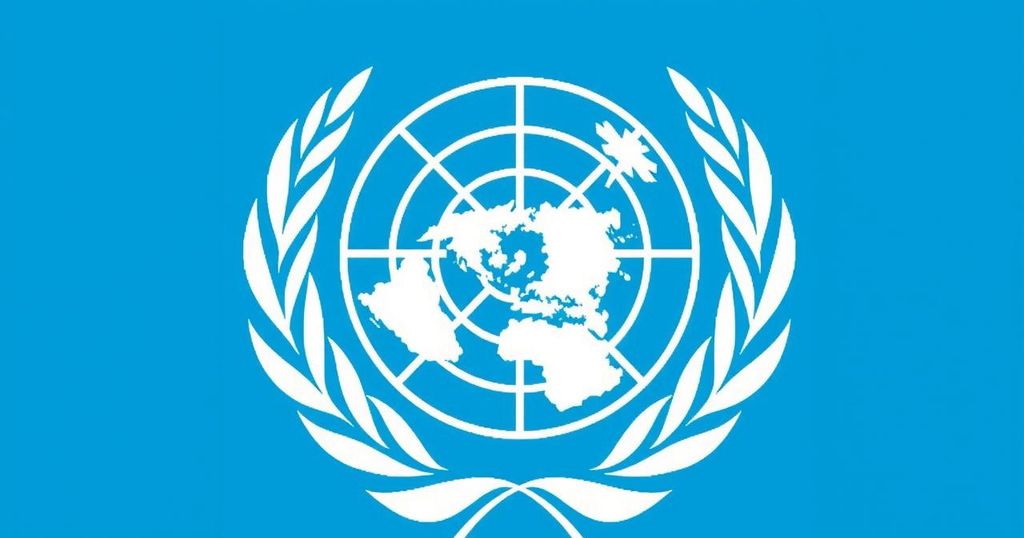Argentina’s Shift to Isolationism: UN Vote Against Gender Violence Alarm Sends Shockwaves

Argentina, led by President Javier Milei, recently became the only nation to vote against a United Nations resolution aimed at combating violence against women, sparking widespread criticism and marking a significant shift in foreign policy. This decision coincides with Milei’s controversial stances, including skepticism about climate change and progressive social policies, aligning Argentina more closely with the far-right ideologies seen in figures such as Donald Trump. The political fallout from this unprecedented approach indicates potential isolation for Argentina in the global arena.
In a remarkable development, Argentina, under President Javier Milei, has become the only nation to vote against a United Nations resolution aimed at eradicating violence against women and girls. The resolution, supported by a majority of UN member states, drew abstentions from countries like Iran and North Korea, but Argentina’s ‘no’ vote has incited considerable outrage across the political spectrum. This move illustrates Milei’s significant shift towards a more radical foreign policy that aligns with the United States and deviates sharply from Argentina’s traditionally progressive stance on social issues. The recent ‘no’ vote has prompted widespread criticism, including from Milei’s political allies. The conservative party, associated with former President Mauricio Macri, remarked on social media that “Argentina votes alone, against the rest of humanity.” Senator Martín Lousteau from the Unión Cívica Radical condemned the vote as a disgrace and criticized the government’s approach to cultural matters, suggesting that it isolates Argentina from the global community. Milei’s government has also taken a hardline stance on climate change, exemplified by his withdrawal of negotiators from a recent climate summit, raising concerns about a potential withdrawal from the Paris Agreement. Additionally, Milei has implemented significant domestic changes, including the elimination of ministries focused on women’s rights and the environment. His administration’s radical cultural positions have drawn ire not only from left-leaning factions but also from centrist allies who fear the ramifications of such a drastic pivot. In the international arena, Milei has publicly embraced controversial figures, including Donald Trump, and has expressed intentions to rely on Trump’s influence to secure financial assistance for Argentina from the International Monetary Fund. However, the ramifications of Milei’s approach have already led to diplomatic tensions, with reports of resignations among diplomats who oppose the president’s aggressive foreign policy. As the political landscape evolves, Milei’s distinctive brand of governance continues to polarize Argentine society, with concerns among citizens regarding the future of social and environmental protections that have been fundamental to the country’s recent history. He is positioning himself both domestically and internationally as a figurehead of extreme libertarianism, unfortunately at the cost of Argentina’s steady progress towards gender equality and social justice.
The recent voting behavior of Argentina at the United Nations signifies a shift in its foreign policy under President Javier Milei, known for his libertarian views and controversial stances on various issues. Traditionally viewed as a progressive nation in Latin America, Argentina’s alignment with extremist policies poses threats to long-established social frameworks, particularly regarding gender issues and climate change initiatives. This situation is compounded by Milei’s relationships with influential leaders, suggesting a potential reorientation of Argentina’s international alliances to favor far-right ideologies.
In conclusion, Argentina’s singular opposition to the UN resolution condemning gender violence represents a radical departure from its historical stance as a champion of social progress. This move highlights President Milei’s commitment to a transformative, and often contentious, governance style that aligns increasingly with far-right ideologies. As Milei engages with figures like Trump and enacts policy changes at home, the implications for Argentina’s diplomatic relationships and social fabric remain to be seen. The widespread backlash against his administration’s current trajectory emphasizes the need for careful navigation of the delicate balance between reform and regression in pursuing the nation’s future. The repercussions of such extreme policies may lead countries to question Argentina’s role on the international stage.
Original Source: apnews.com







